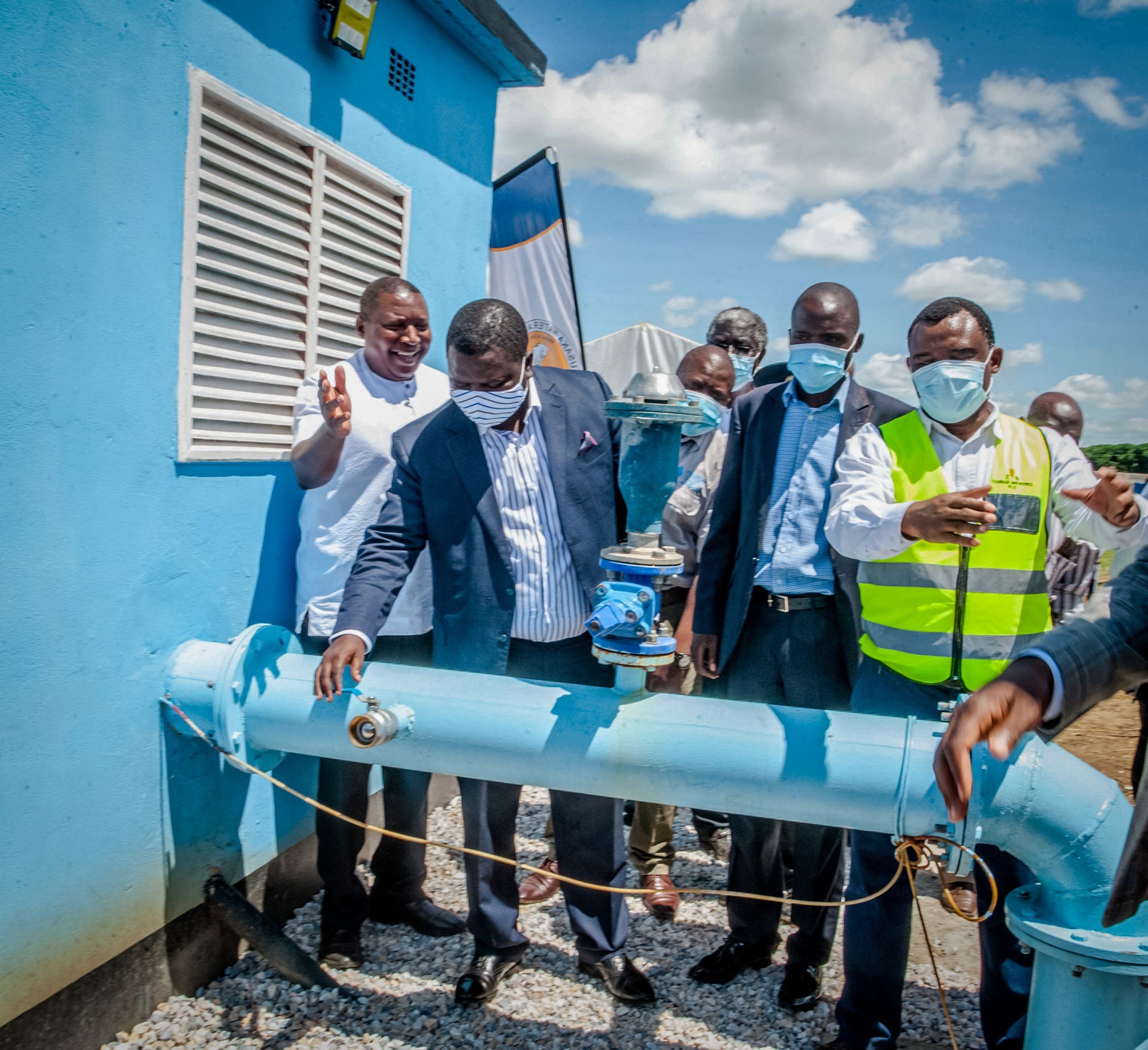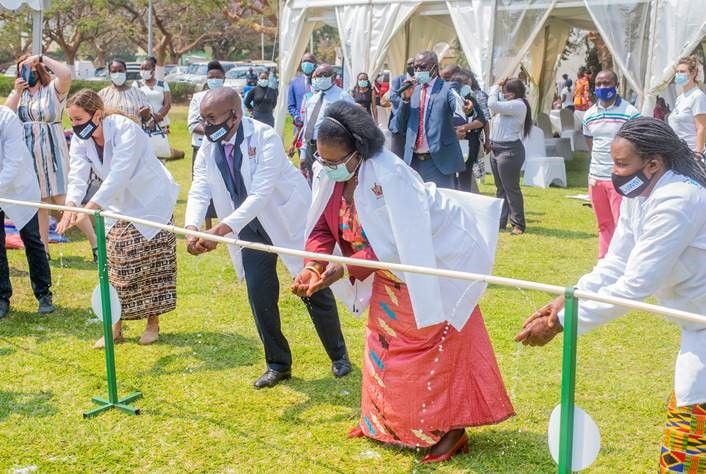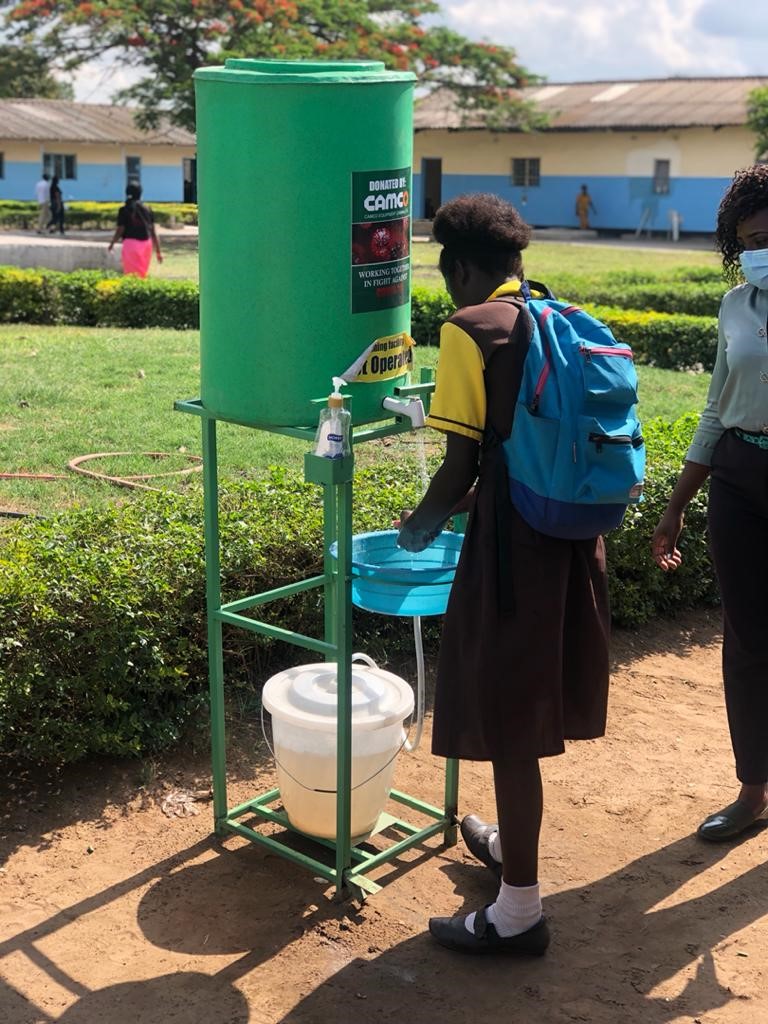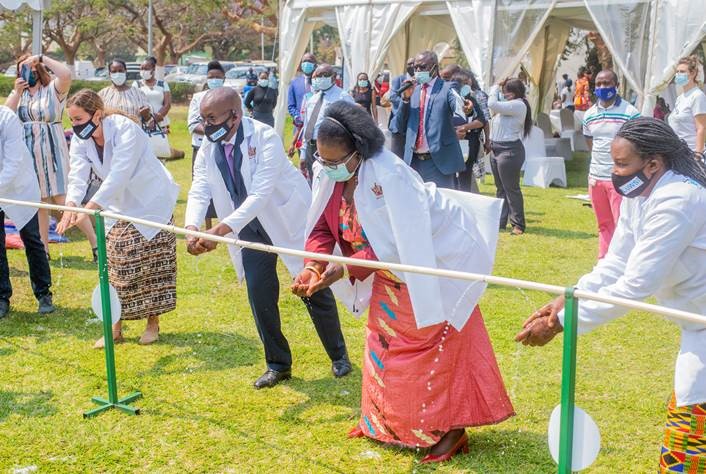Improving water supply for low income communities in Lusaka
As one of the fastest-growing cities in Southern Africa, the Zambian capital Lusaka faces numerous threats to its water security. This is especially the case for low-income areas, where mere access to water remains a challenge. One such area is George Compound, a peri-urban community of 200,000 residents located in the Western part of Lusaka. Many residents fetch their water at public kiosks, serviced by the local utility company’s wellfields. However, some residents still fetch it from contaminated or heavily polluted shallow wells.
To address this problem, the Lusaka Water Supply and Sanitation Company (LWSC) implemented a water supply improvement project in George compound and the surrounding industrial area. The project was financed by Zambian Breweries (ZB) at a cost of 150,000$. It involved the drilling of a borehole and the installation of a 3.4km pipeline to George compound.
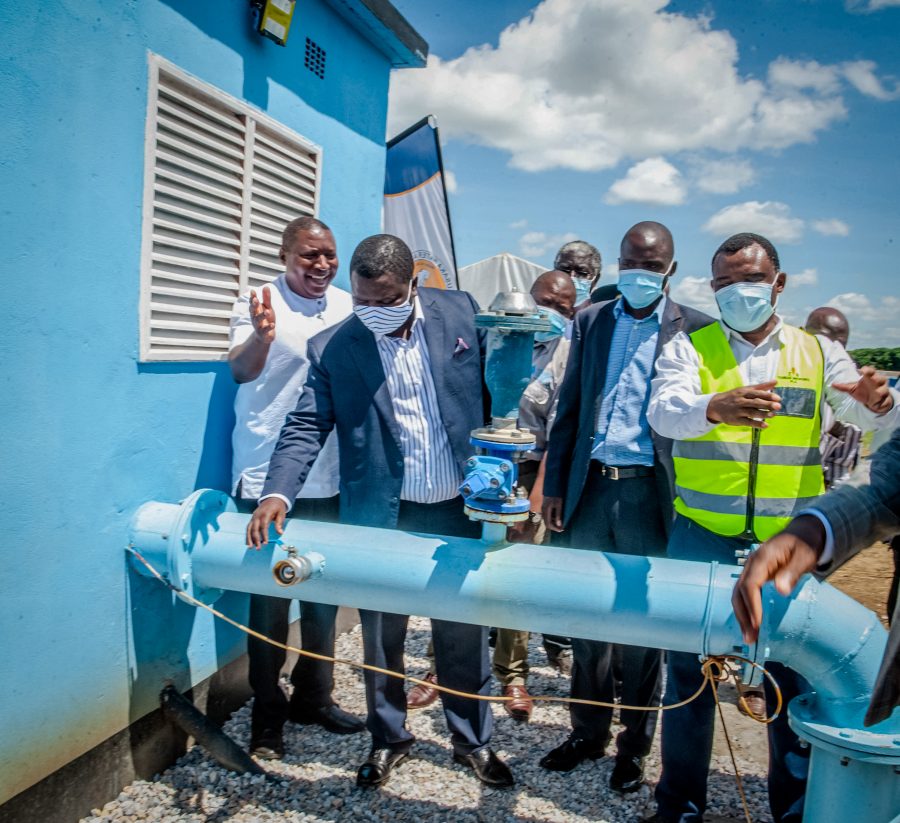
Copyright: LWSC and ZB
Over 40,000 community members will benefit from this collective action, implemented under the Lusaka Water Security Initiative (LuWSI) partnership. Additionally, it will also serve as a COVID-19 prevention measure, as it provides reliable access to water and hence makes e.g. regular hand-washing possible.
The Minister of Water Development, Sanitation and Environmental Protection, Honorable Rapheal Nakachinda, commissioned the project infrastructure on March 19th, 2021. NatuReS Zambia as partners of LuWSI facilitate and promote such collective action in order to manage natural resources for sustainable growth and better livelihoods.
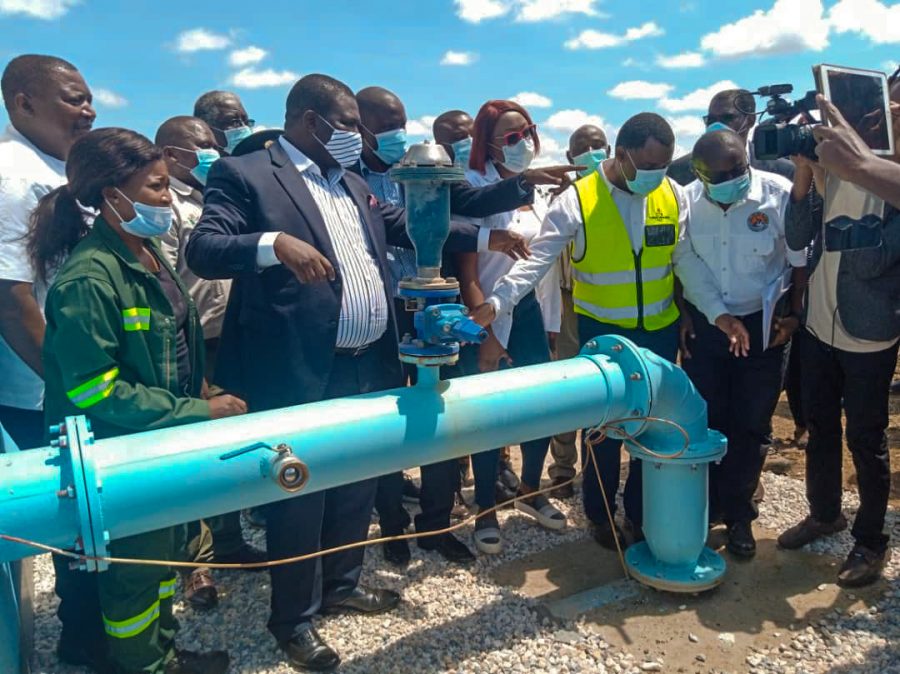
Copyright: LWSC and ZB
Author: Sonile Mutafya, NatuReS Advisor, Zambia
